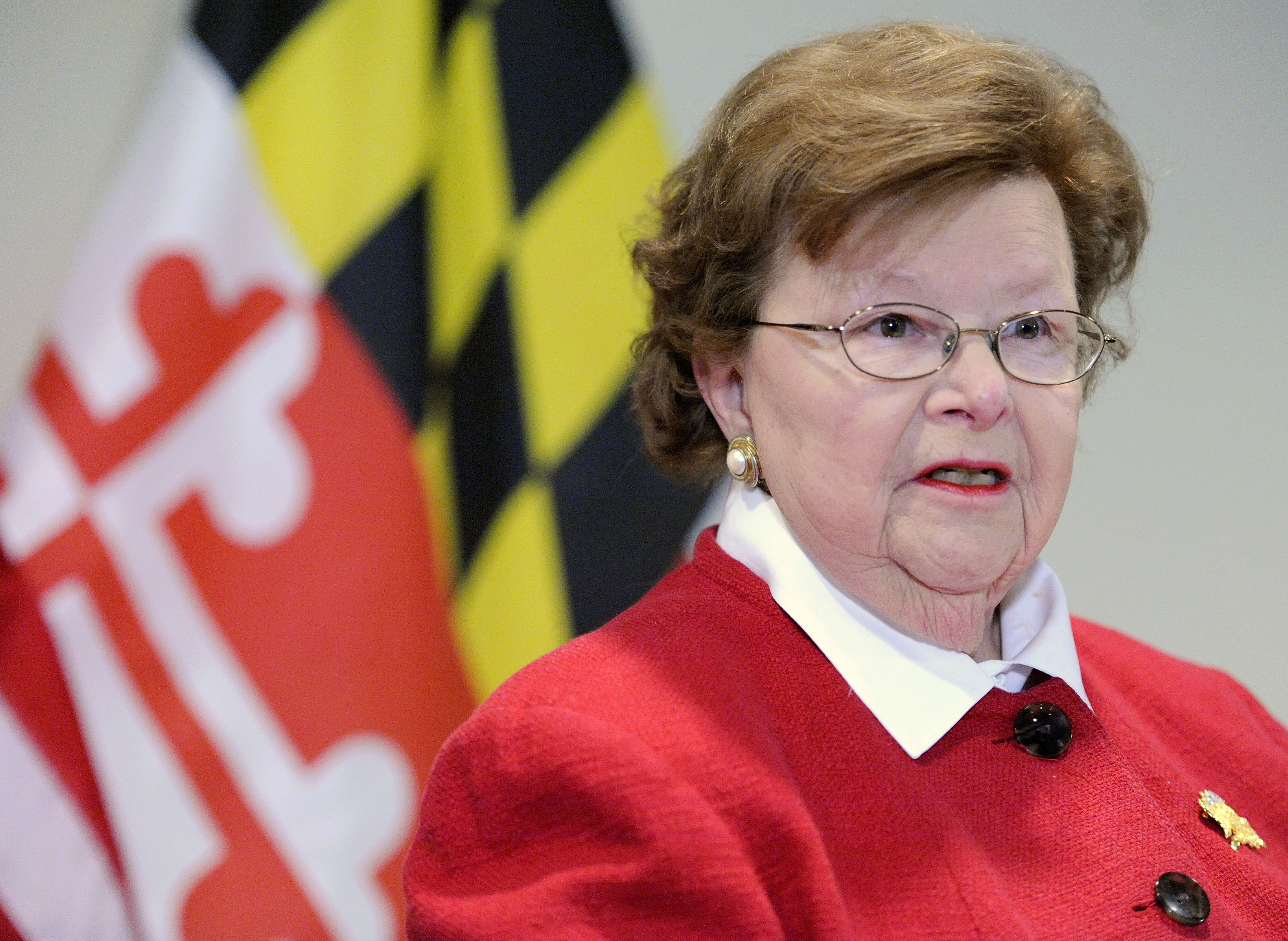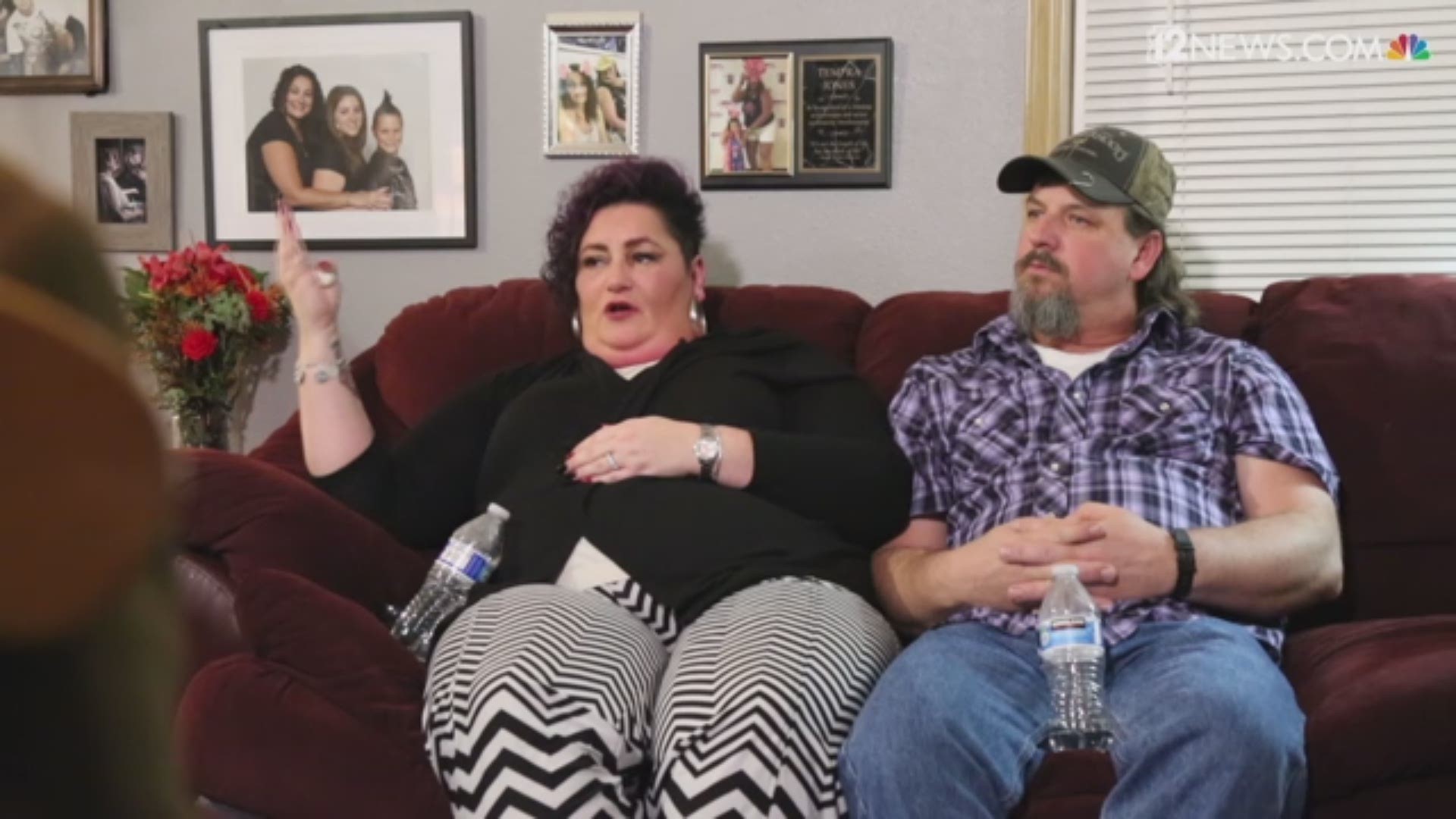WASHINGTON — Maryland's congressional delegation is poised to become all-male for the first time in more than 40 years.
The state has had at least one woman in its 10-member delegation since 1973, and its senior senator, Barbara Mikulski, has served in the Senate longer than any woman in U.S. history.
But all that is about to change as Mikulski prepares to retire in January after serving a decade in the House and 30 years in the Senate. The only other woman in the Maryland delegation, Rep. Donna Edwards, will give up her House seat in January after losing the Democratic nomination to replace Mikulski to Rep. Chris Van Hollen.
![Van Hollen coasts to Maryland Senate primary win [oembed : 84275342] [oembed : 84275342]](/Portals/_default/Skins/PrestoLegacy/CommonCss/images/smartembed.png)
"It's kind of shocking to imagine Maryland without a single woman in its legislative caucus," said Debbie Walsh, director of the Center for American Women and Politics at Rutgers University. "It's not just that these women serve as role models. They also bring a different set of life experiences to governing and it affects the way Congress operates."
Currently, only 14 states have all-male delegations.
The timing is especially ironic for liberal Maryland since it comes in a year when a woman has the strongest chance in U.S. history to win the presidency and female candidates have become key to Democrats' hopes of taking control of the Senate from Republicans.
![Female candidates will be key as Democrats pursue Senate majority [oembed : 84257536] [oembed : 84257536]](/Portals/_default/Skins/PrestoLegacy/CommonCss/images/smartembed.png)
It's not that the state is devoid of female candidates. Republican Kathy Szeliga, a member of the Maryland House of Delegates, will compete against Van Hollen in November's general election for Senate. And Republican Amie Hoeber, who served as deputy undersecretary of the Army under President Reagan, won last month's GOP primary in the 6th Congressional District, represented by Democrat John Delaney.
But Democrats hold a 2-to-1 voter registration advantage over Republicans in Maryland, which has only one GOP member in its congressional delegation. Political analysts say Van Hollen and Delaney are the odds-on favorites to win their races.
Still, Szeliga sees a chance to appeal to voters who want to continue Maryland's "proud tradition of diversity in the delegation."
"I would never say a woman will vote for me simply because I'm a woman," she said. "We are much more thoughtful and complex than that. However, I will say that I easily see a Hillary Clinton voter that is also a Kathy Szeliga voter, whereas I don't see a Donald Trump voter that is also a Chris Van Hollen voter. So clearly there is room for crossover support."
Democratic women, however, are guaranteed to disappear from the delegation after the fall election, a depressing reality for party activists who say they hope to improve that situation soon.
Emerge Maryland, a political training program founded about four years ago to increase the number of Democratic women in office, has had members of its first three graduating classes elected to the state legislature, said board chairman Martha McKenna. Congressional candidates traditionally come from the ranks of state lawmakers.
"We're building the pipeline," McKenna said.
Whatever their party, female lawmakers tend to prioritize issues that are important to women, families and children, Walsh said.
"A woman discussing how to create the best job training program targeted toward women would know that it has to include child care to succeed," she said. "It's not that men would be opposed to that. They just wouldn't think of it in the first place."


![AP MIKULSKI A USA MD [image : 77482870]](http://www.gannett-cdn.com/-mm-/95e39b587f70fef93eb0d551ad207649b838a13e/c=515-0-3723-2742/local/-/media/2015/12/17/USATODAY/USATODAY/635859511235380290-AP-MIKULSKI-71278478.JPG)
